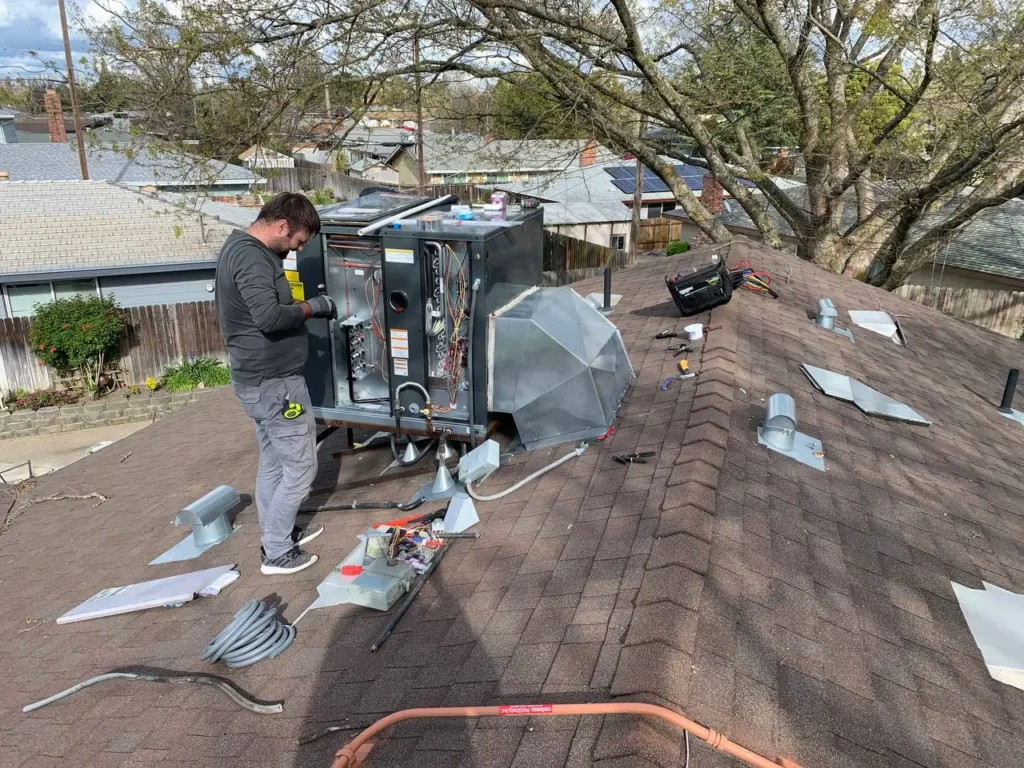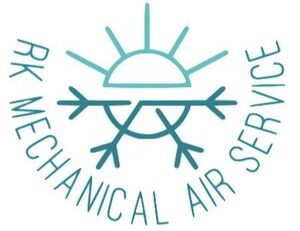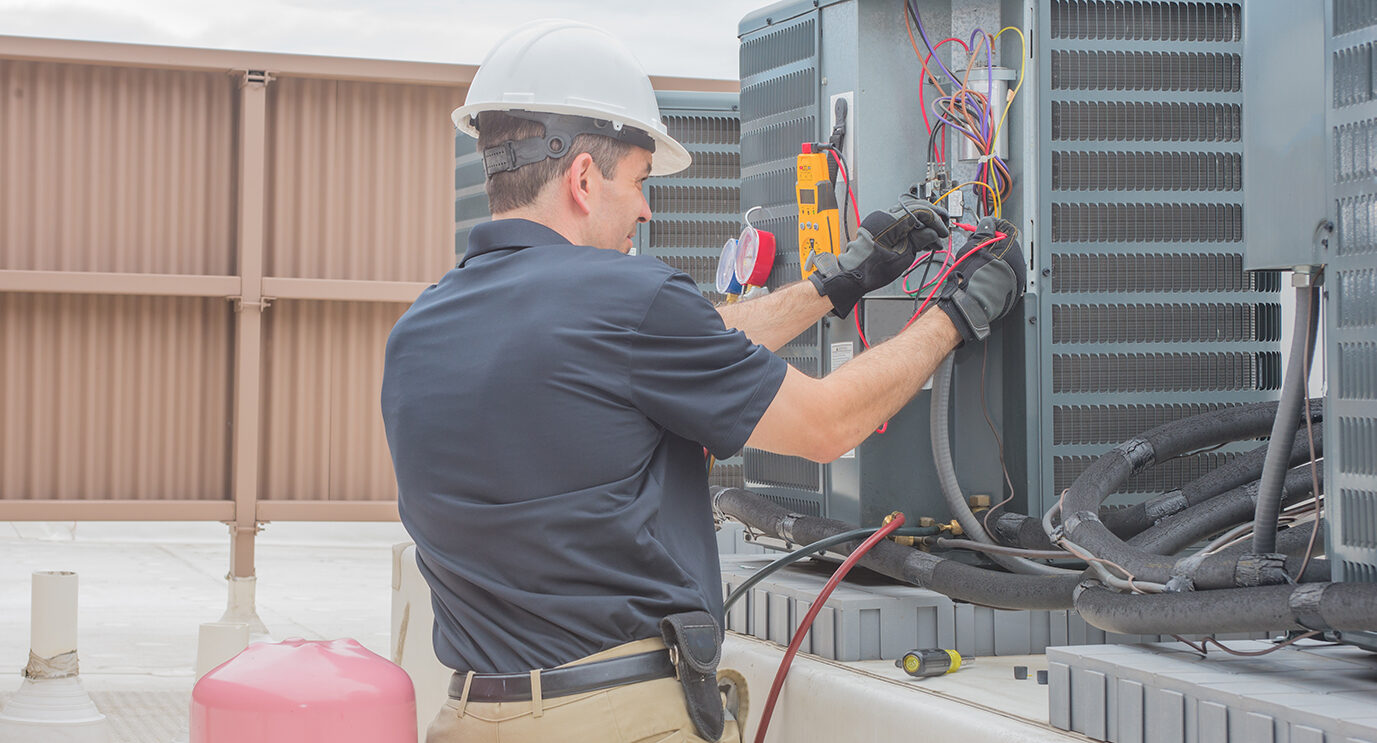
As the chilly winter months approach, your furnace will become the heart of your home, keeping you warm and comfortable. However, just like any other machine, your furnace might strain and break down at any given moment. So, how do you know when it’s time to call in the professionals for a furnace repair?
When your furnace is on the brink of giving out, it will show signs that something’s wrong. The key to avoiding a complete breakdown in the middle of a winter night is to pay attention to these warning signs and schedule a furnace repair promptly.
In this post, we’ll break down the most common red flags that signal it’s time to give your furnace some professional attention.
Signs You Need a Furnace Repair
Here are some common warning signs that your furnace might be struggling:
1. Spike in Energy Bills Without Increased Usage
No one likes surprise additional costs in their utility bill, especially when you haven’t been cranking up the heat. If you’ve noticed a spike in your heating costs, your furnace might be to blame. An inefficient furnace has to work harder to maintain the same temperature, which means more energy consumption.
Common culprits include:
- Aging Furnace: As your furnace gets older, it may lose its efficiency. This gradual decline in performance means it burns more fuel or uses more electricity to achieve the same level of heating.
- Clogged Filters or Ducts: A dirty air filter or clogged ductwork forces your furnace to work harder than it should, leading to increased energy usage.
If your furnace is suddenly draining your wallet, it’s a sign that it’s no longer operating at peak efficiency and needs some repair.
2. Excess Dust Near Furnace Vents
Have you noticed more dust than usual near your furnace vents? A dusty house could indicate that your furnace’s filter is clogged or that the system isn’t circulating air properly. While it may seem like a minor issue, excessive dust can affect air quality and put extra strain on your furnace. Changing filters regularly helps, but if the problem persists, a deeper issue could be at play.
3. Strange Noises Coming from Your Furnace
Your furnace should hum along quietly, with a little whoosh as the heat kicks in. But if you’re hearing any new or unusual sounds, that’s a sign of trouble.
Here’s what to listen for:
- Banging or Clanging: If it sounds like someone’s playing the drums in your basement, there’s likely a mechanical issue at play. These noises could point to anything from loose parts to more serious internal damage.
- Squealing or Screeching: High-pitched sounds often mean there’s an issue with the blower motor or fan belt. This isn’t something you want to ignore because a malfunctioning blower can quickly lead to a system shutdown.
- Rattling: This could be as simple as a loose screw or as serious as a cracked heat exchanger, which could lead to carbon monoxide leaks—something you definitely want to avoid.
4. Old Furnace
Consider the age of your furnace. Most furnaces have a lifespan of 15–20 years. If your furnace is nearing or has passed this milestone, even minor issues could indicate it’s time for a major repair—or even a replacement. Older furnaces are less efficient, more prone to breakdowns, and can pose a safety risk if they’re not regularly maintained.
5. Uneven or Insufficient Heating
If you find yourself constantly adjusting the thermostat, but some rooms are still chilly, something’s up with your furnace. You might experience:
- Hot and Cold Spots: When some areas of your home feel like the Arctic and others feel like the tropics, your furnace may not be distributing heat properly. This could point to anything from a clogged filter to a failing blower.
- Weak Airflow: If the air coming through your vents feels faint or weak, it’s a sign that your furnace’s blower is struggling. It could be clogged ducts, a faulty fan motor, or an issue with the belts inside the unit.
6. No Warm Air
This is a big one—if your furnace is blowing cold air or no air at all, it’s a glaring sign that you need a repair ASAP. The issue could range from a thermostat malfunction to a problem with the blower or a pilot light failure. Whatever the cause, no warm air means you’re not getting any heat, and that’s the opposite of what a furnace should do.
7. Frequent Cycling On and Off
Your furnace should follow a predictable cycle: turning on to heat your home and then shutting off once the desired temperature is reached. If your system is short-cycling (turning on and off rapidly), it’s not just annoying—it’s a sign something’s wrong. Possible causes include:
- Overheating: If your furnace overheats, it will shut itself off to protect the system. This could be due to a dirty filter, blocked vents, or internal damage.
- Thermostat Issues: If your thermostat is malfunctioning, it may cause the furnace to cycle incorrectly.
Constant cycling not only makes your home less comfortable but also puts extra strain on your system, leading to faster wear and tear. Consider getting this checked out before it spirals into a full-blown breakdown.
8. Yellow or Flickering Pilot Light
Take a peek at your furnace’s pilot light. Is it a steady blue flame? That means your furnace is running efficiently and safely. But if the flame is yellow or flickering, it’s time to act. A yellow flame can indicate that your furnace is producing carbon monoxide, a dangerous and potentially deadly gas.
Other reasons for a discolored or unsteady pilot light include:
- Lack of Oxygen: A yellow flame can mean your furnace isn’t getting enough oxygen to burn cleanly, which could be due to poor ventilation.
- Burner Issue: A dirty burner may not ignite properly, causing incomplete combustion and, again, leading to potential carbon monoxide production.
This is not one of those signs you want to ignore. A yellow pilot light requires immediate attention to ensure the safety of your household.
9. Furnace Running Constantly
While frequent cycling is a bad sign, so is your furnace running non-stop. If your furnace never seems to turn off, even when your home feels warm, something’s off. Causes could include:
- Thermostat Malfunction: The thermostat could be stuck, sending continuous signals to your furnace to stay on.
- Faulty Blower: If the blower is malfunctioning, it may keep pushing air even when the system should be off.
Running constantly puts your furnace under extreme strain, wearing out components faster and driving up energy costs. This issue can also indicate that your furnace is struggling to meet your home’s heating needs, which means it’s time for a repair.
10. Unpleasant Smells
Your furnace shouldn’t be emitting any strange odors. If you notice any weird smells, it might be time to schedule a furnace repair. Here are some common smells to take note of:
- Burning Smell: If it smells like something’s burning, it could just be dust burning off if you haven’t used your furnace in a while. But if the smell lingers, it might mean an electrical issue or that a component is overheating.
- Rotten Egg Smell: This is a big red flag. A sulfur or rotten egg smell could indicate a gas leak. If you detect this, shut off your furnace immediately, leave your home, and call both the gas company and a furnace technician right away.
Schedule Your Furnace Repair
Don’t wait until your furnace completely gives out in the middle of winter. If you notice any of these warning signs, it’s time to take action. Regular maintenance and timely repairs can extend the life of your furnace, improve efficiency, and keep your home warm and cozy.
Our team of experienced technicians is ready to help you get your furnace back up and running. Contact us today for furnace repair services in Roseville, Rocklin, Auburn, Davis, Woodland, Napa Valley, Santa Rosa, San Rafael, and surrounding areas.




